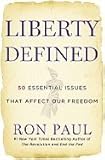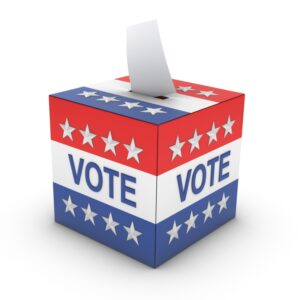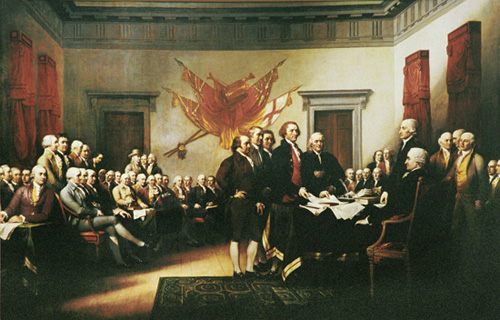 Deep within the heart of mankind is a hesitancy, if not an outright refusal to accept responsibility. Some of us are able to work up the courage on occasion, but generally our first (and second, and third) response is to point the finger at someone else.
Deep within the heart of mankind is a hesitancy, if not an outright refusal to accept responsibility. Some of us are able to work up the courage on occasion, but generally our first (and second, and third) response is to point the finger at someone else.
Yesterday a friend told me a story he had been involved with personally that illustrates this perfectly.
At a recent, one-time event, held by a group of Christian home schooling families at a local park, a boy was injured on the playground equipment. It was bad enough that his family incurred a couple thousand dollars worth of medical bills for his treatment. They did not have medical insurance, so at some point they were counseled to bring a lawsuit against the park to help cover the medical costs. The park, in turn, required (I’m not certain if it was through further litigation) that the home school group acquire insurance for that past event, as well as future ones. The buck was passed from one party to another to another.
My friend lamented this one family’s choice to forego health insurance. That was their responsibility, thought he. I contend that, while he’s right that insurance would be the smarter option for them, they could still choose to not pay monthly insurance, but they are still responsible for the medical bills for themselves and anyone under their care: like a young son, living in their home.
But our culture—nay, human nature—looks for someone else to pass the responsibility on to.
We do it in so many ways. It’s not necessarily just when we do something wrong. We are loth to accept our own responsibility for our eating, sleeping, and other personal care routine and choices. We neglect opportunities for our own education in deference to an easier, more “fun” experience. We miss chances to encourage one another because of the “effort” involved in doing so.
In every case, whether missing out on good, or not owning up to an already-chosen bad… we seek someone or something else to be culpable.
Is it just shame? We don’t want to be the ones who were wrong? Is it that we want someone else to take care of us? I honestly have no idea.
It’s really easy to do, though. I think it’s the reason we clamor for a “king”.
Do you remember the story? The Israelites didn’t want to just be personally responsible to God, they wanted a king like all the other nations. And so God gave them a king, and that did not turn out well.
Today we in America seem to think our President is a king. (I think the presidents do, too, with all of their executive orders.) We get so excited in the lead up to a Presidential Election because he is the embodiment of “Someone Else” to take the blame.
Now, obviously, it’s not all blame. Sometimes he is also praised. We pass that responsibility along, too. Basically, it seems like we’re saying, whether good or bad, I just don’t want to be responsible for it!
Having six rather young children in our home (though they are getting older…) we see this play out time and time and time again. It’s so incredibly rare for any of them to step out and instantly accept responsibility for an action. The funny thing is, the youngest often have the easiest time of it. Our two-, three-, and four-year-olds are the ones who will answer, “I did it!” when Mom or Dad ask, “Who is responsible for this??”
What lovely transparency! How great would it be if we all could be so carefree about our reputation and convinced of our acceptance with and love from those who matter to us that we could simply say, no matter how bad it might seem for us, “It was me!”
It takes humility. Thinking of others more than yourself. It takes that peculiar confidence of feeling—no, knowing—your full acceptance with those that matter.
And ultimately, that comes from understanding your position with Father. Doesn’t it?
A deep confidence in your “rightness” (righteousness through faith) with him. We have been made right with him, by his choice; if God is for us, then who could be against us.
Accepting personal responsibility is also rooted in a love for justice. For truth. (Which, is even more deeply rooted in a genuine care or concern for others, that comes from humility …)
It can certainly be difficult, embarrassing, even painful. There are many reasons to not accept responsibility for your actions (or inactions). And that’s why we’re so good at it, so often. But there is deeper, more lasting joy in doing what is required of you. It’s really the core of a society: that each member is wholly responsible for himself.
We do live in a free nation, founded on this idea that each member is created equally, granted certain inalienable rights by the Creator, and is personally responsible for his own actions.
What about those who are born incapable of being responsible for their own actions, whether physically or mentally? Are they expected to “take care of themselves” and the rest of us should just “stick it to them” if they can’t? What about social justice, and social injustice? If someone can’t care for themselves, and they don’t have any family or close friend who is willing to do so, don’t we have a “responsibility” to them?
Sure! Each of us has a personal responsibility to act in whatever situations to aid persons God brings across our paths. Definitely. And we can even join forces, as churches or otherwise, to perhaps do “greater” (more) good for more people. Jesus spoke often about caring for poor, widows, orphans, etc. This is actually one of our responsibilities: to help those who can’t help themselves.
But…
This is a neat quote from Benjamin Franklin regarding charity:
To relieve the misfortunes of our fellow creatures is concurring with the Deity; it is godlike; but, if we provide encouragement for laziness, and supports for folly, may we not be found fighting against the order of God and Nature, which perhaps has appointed want and misery as the proper punishments for, and cautions against, as well as necessary consequences of, idleness and extravagance? Whenever we attempt to amend the scheme of Providence, and to interfere with the government of the world, we had need be very circumspect, lest we do more harm than good.
Our society today has taken the Blame Game so far that a large portion of our citizenry (and non-citizens?) have the mentality of entitlement, and a “victim” mindset. That blame is even worse because it is somewhat amorphous, nebulous, and faceless. It’s “the Man” who keeps you down, a corrupt system, evil Capitalists, greedy bankers, and so forth. If it’s easy enough for us to blame another person face to face, it’s super easy to pass blame onto someone who is not a real person.
Then we are left with an entire culture who is always passing along responsibility to the “next guy”. Personal Injury lawyers… yikes. They only exist to “blame” someone else, to the tune of millions of dollars. But it’s not just litigation. The Blame Game is played at all levels of our society, to the point where it’s incredibly, ridiculously rare to see someone willingly accept responsibility for their own actions, and even to assist someone else, without being forced to do so.
I may be speaking too generally here. No, I’m sure I am. But I’ve been wanting to write out these thoughts for quite some time because it’s more than rampant in every area of American life. (And yes, I’m sure it’s not just in America.) There is something at the core of us that does not want to accept responsibility.
That core—the root—seems to me to be a deeply rooted trust in Father. I really believe that’s the key to life: Trust. Jesus seems to speak of it throughout the gospels. It’s a central theme: faith, trust… placed in a Father who loves you more than you can even imagine.
So if he’s got your back… you can take the blame. You can accept the responsibility, despite whatever pressure it might put on you once you do.
Because He is for you.
I wonder how different our life together could be if we all really knew—and believed—that?

 I wouldn’t usually post such photos here. But I guess I’m trying to make a point.
I wouldn’t usually post such photos here. But I guess I’m trying to make a point.


 Do you remember the segment on Sesame Street when we were growing up, “One of these things is not like the other…” The point of the activity was to look at several items and point out the one that was different. In that case, different was wrong, to be singled out and removed, changed to match the rest.
Do you remember the segment on Sesame Street when we were growing up, “One of these things is not like the other…” The point of the activity was to look at several items and point out the one that was different. In that case, different was wrong, to be singled out and removed, changed to match the rest.
 And so it ends. Or, begins? Continues?
And so it ends. Or, begins? Continues?



